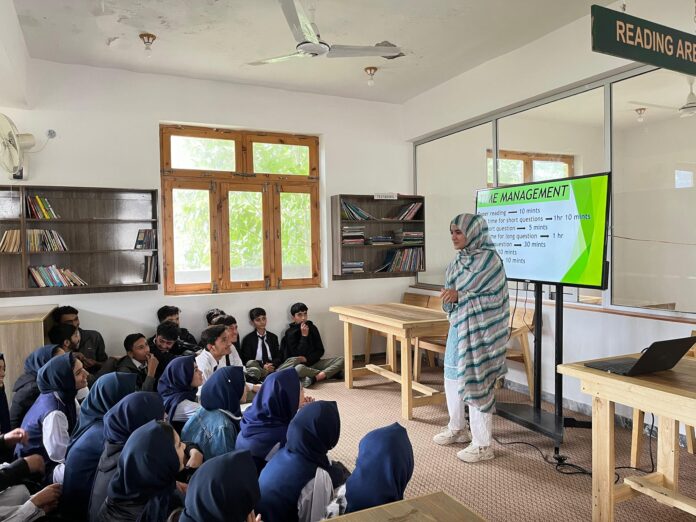Hunza, a remote valley in northern Pakistan, is renowned for its high literacy rates and emphasis on education despite challenging geographical conditions. As the 21st century progresses, Hunza’s education system is transforming significantly, adapting to modern needs while maintaining its cultural roots. Hunza is equally interested in exploring the educational initiatives that have empowered the local community there and set an example for other areas.
It was in 1946 that some 16 schools were established. They were called the Diamond Jubilee schools and they set the right momentum for bringing changes to education in Hunza. Diamond Jubilee Middle School, Altit, is one of the oldest Aga Khan Education Service, Pakistan schools, established in 1946. Today, it has classes from pre-primary III up to grade VIII.
Hunza is increasingly embracing technology to enhance its educational framework. Despite its isolation, digital tools like e-learning platforms, internet resources, and mobile technology are helping bridge the gap between students and global knowledge. Schools are gradually adopting computers and other digital resources, enabling students to access quality education regardless of geographical barriers.

Hunza has a strong tradition of supporting education for both boys and girls, with female literacy rates considerably higher than in other parts of Pakistan. This focus on gender equality continues to be a priority in the region, with new scholarships and policies encouraging more girls to pursue education, including higher studies and vocational training.
Hunza’s educational story has many lessons for other areas of Pakistan where talent is not properly exploited. It shows us that difficulties and challenges can be overcome if the leadership has political will and if the community is trusted and involved in planning and the execution of educational plans.
Hunza’s education system is evolving in ways that embrace modern technology, promote inclusivity, and support sustainable development, all while preserving the region’s cultural heritage. These changes are preparing Hunza’s students to face the challenges of the future with confidence, innovation, and a strong sense of community.

